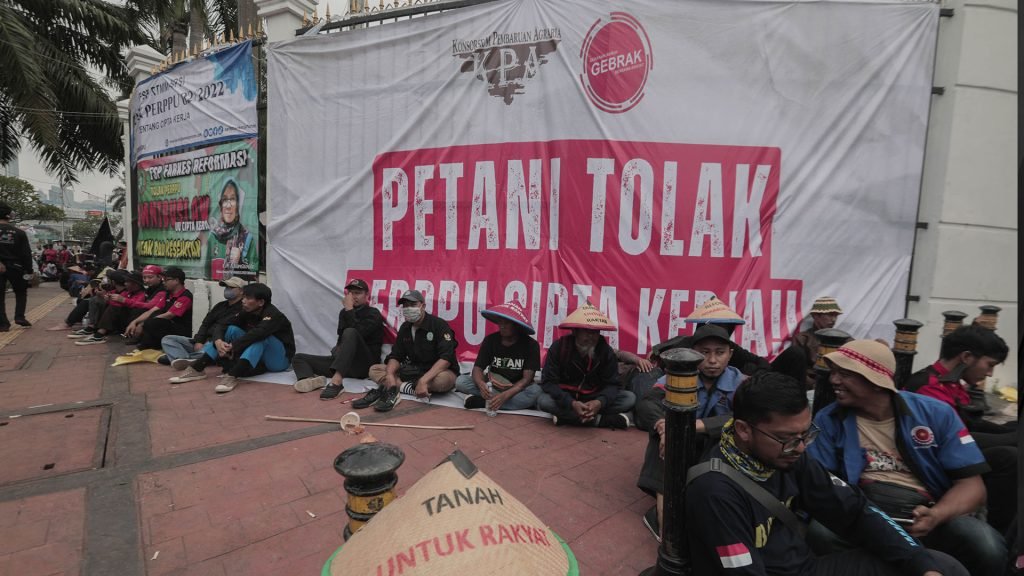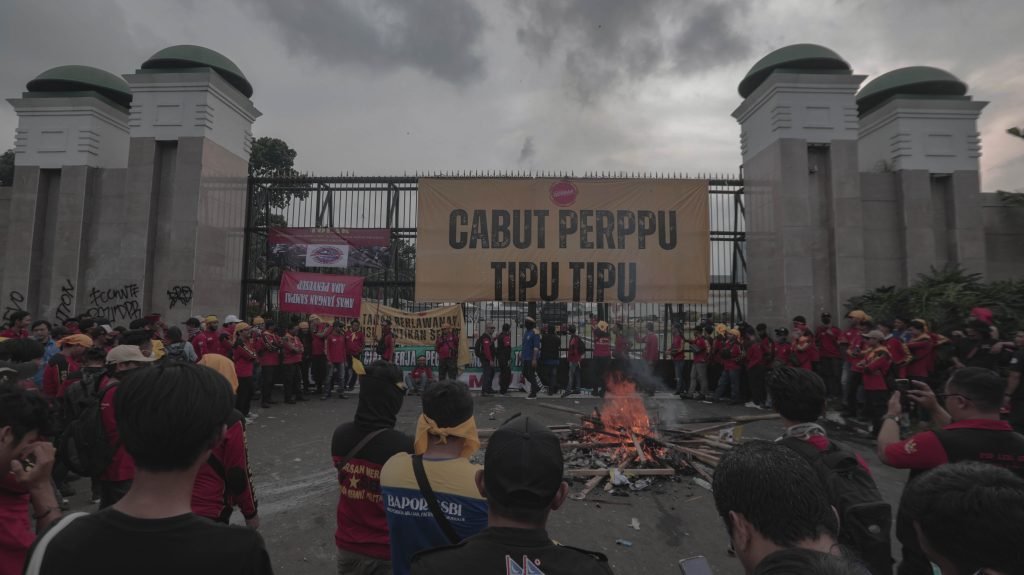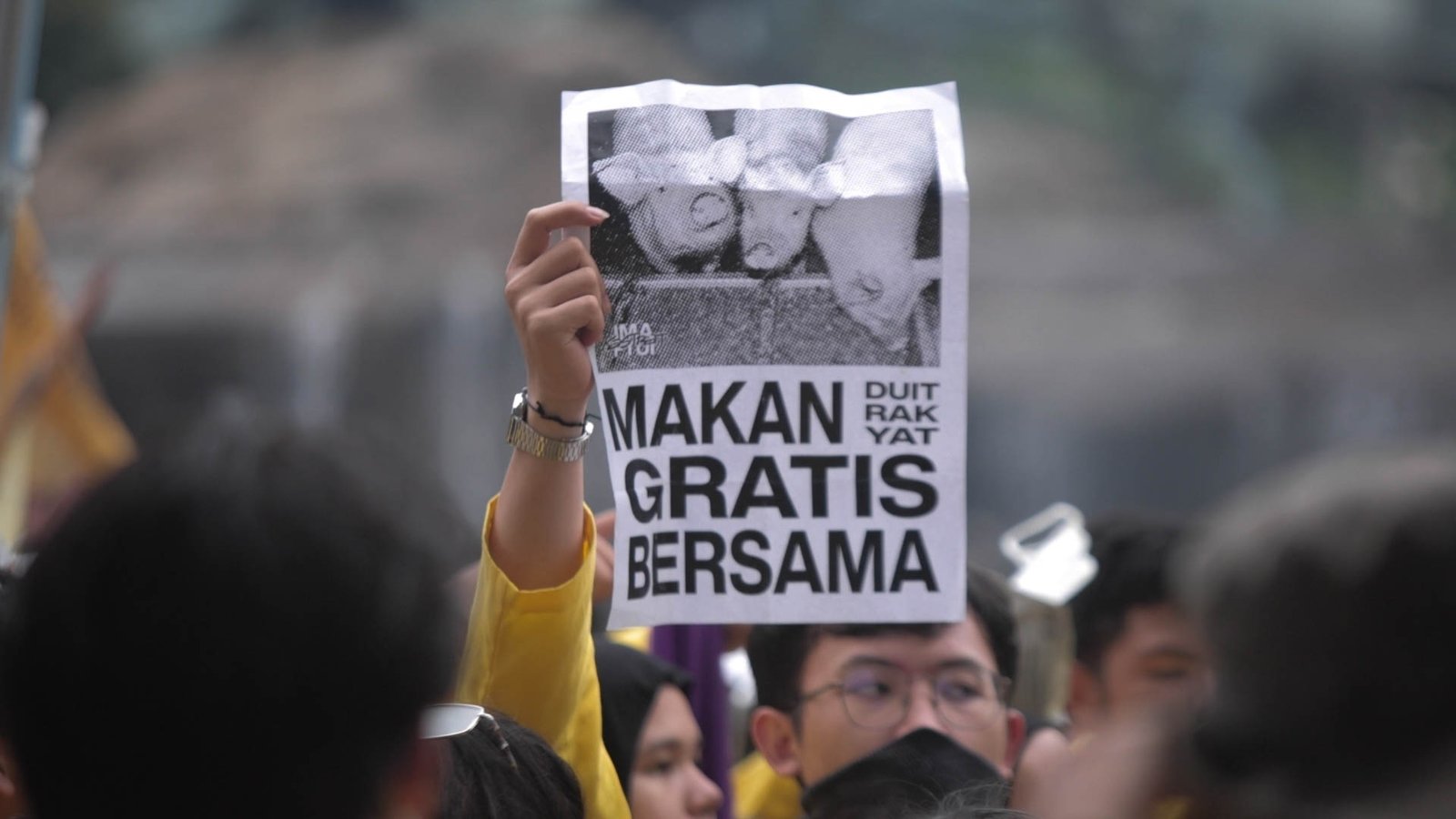

The rejection by various elements of society against the Job Creation Law occurred on Tuesday, 14 March 2023. The demonstration against the Job Creation Law was a response to information on the ratification of the Job Creation Law by the House of Representatives on Monday, 13 March 2023. Several trade unions, student unions, and groups of farmers participate in demonstrations demanding the cancellation of the work copyright law. Various demonstration efforts took place from 2020 to 2023. Workers’ representatives have even accepted Judicial Review efforts.Several efforts by workers’ representatives have carried out Judicial Review efforts.


The Job Creation Law, or omnibus law, originated with President Jokowidodo’s speech at his inauguration on October 20 2019, to simplify existing laws and regulations. The Job Creation Law contains 15 chapters and 186 articles. The process for formulating the Job Creation Law has been going on since January 15 until it was ratified on October 5 2020, to become Law number 11 of 2020 concerning job creation. Several points of Job Creation drew protests from several elements of society related to the formulation of laws that did not involve the community, and topics in the Job Creation Law were problematic for several aspects of the people community


Previously Job Creation Law on November 25 2021, was declared conditionally unconstitutional. It was contradictory and did not have a conditionally binding law as long as it did not mean ‘no amendments were made within two years of the decision. Several points of the Job Creation Law, which amended the Manpower Law, were deemed problematic for workers, namely the existence of severance pay regulations, working hours, and the easy entry of foreign workers.


In the agricultural sector, the Job Creation Law is considered problematic with abolishing the food import requirements stipulated in Article 36 of Law No. 18 of 2012. For indigenous peoples, the Job Creation Law also poses a threat with the existence of Cultivation Rights (HGU) permits (HGU (90 years)) with minimal community participation earlier in the discussion of the Job Creation Law. The implementation of regional permit rights, which so far has lacked control, and the imposition of administrative sanctions threaten indigenous peoples. Because several points of the Ciptakarya Law are problematic for the community, several elements of society have gathered to reject the ratification of the law Job creation demands the abolition of the Job Creation Law and a law that is in favour of people’s rights.






